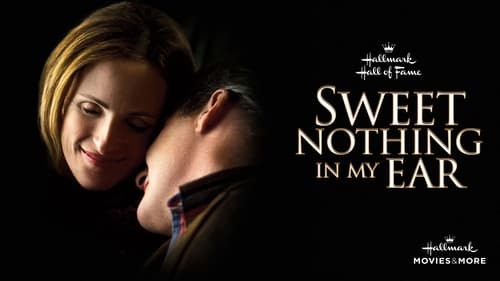Lucybespro
It is a performances centric movie
Ketrivie
It isn't all that great, actually. Really cheesy and very predicable of how certain scenes are gonna turn play out. However, I guess that's the charm of it all, because I would consider this one of my guilty pleasures.
Robert Joyner
The plot isn't so bad, but the pace of storytelling is too slow which makes people bored. Certain moments are so obvious and unnecessary for the main plot. I would've fast-forwarded those moments if it was an online streaming. The ending looks like implying a sequel, not sure if this movie will get one
Cissy Évelyne
It really made me laugh, but for some moments I was tearing up because I could relate so much.
jotix100
An important look at the world of deafness that is seldom seen on television is the work of Stephen Sachs, whose play he adapted for the small screen, and directed by Joseph Sargent. The creators take us to a situation not often seen on television.This is a small project by all accounts, yet it takes the viewers behind the reality of people that face a hardship most of us don't know anything about, and even discrimination from ignorance. In the case of the Millers, what seems to be a happily adjusted family, the wife, Laura and the young son, Adam, live in a world where sound, as one knows it, is absent.When young Adam is taken to a hospital to be treated from a nasty fall, the intern that takes care of the wound, suggests a cochlear procedure so the boy can hear. Dan, the father, begins to ponder on the benefits Adam would receive, but the mere thought of it triggers a confrontation with Laura, who is reluctant to have her young son submitted to an operation with what she thinks is a risk she wouldn't like to take.That episode is what triggers a war between Dan and Laura, who decide to separate and get involved in a custody battle. At stake is what Laura perceives the loss of a culture for Adam. After all, she has lived a somewhat happy life in an loving environment with Dan. Her parents, who are deaf as well, never reveal a family secret that involves her.This movie is a bit different from what is shown in some family oriented channels. The casting of Jeff Daniels as Dan Miller, was a stroke of luck for the people involved in the film. Mr. Daniels is a natural who is good in anything he plays. Marlee Matlin, a deaf-mute actress is appealing as Laura. The supporting cast adds another dimension to the story.This is a film that goes where others don't dare to go.
kawfolks
I half expected the ending to be just as it was, which was why I gave it a nine instead of a ten, just because I found it a bit predictable. I figured that Marlee wouldn't want to be in a movie where the character actually went through with the cochlear implant surgery, but at least it was left open for the viewer to wonder about whether or not the boy ended up having the surgery.One thing I found interesting was that they used the "snake bite" sign for cochlear implant instead of signing "c" "i" - which some people who have chosen the CI route find offensive. I found that interesting but in no way did I find they slanted things for either side. Both sides really were equally portrayed; I could detect no bias whatsoever. The most important thing to me was ultimately displayed in this film - that this is an intensely personal decision a family must make, one that is right for them. It is not for the deaf community, or the hearing world, or a judge to decide - it is the family, and that was, to me, the message of this film.As the parent of a child with a profound hearing loss, I appreciated the way this movie was done. Great job!
SmallTownSim
"Sweet nothing in my ear" is the story (told in retrospect) about a hearing man, his deaf wife and his deaf son and the controversial debate over what is normal and acceptable for all involved.To tell you the truth, I had not planned to watch this film. Just as a fluke the channel ended up on Hallmark when the program began and as it progressed I was compelled and drawn into the story of hearing and deafness and family and differences and likeness.I was impressed and appreciative of the way it was handled... with voices being heard for those signing instead of "speaking" as they sign- true to life.The story was freshly told in a way that allowed the viewer to see all sides of the issue of hearing versus deafness. I also frankly was mesmerized by how those who are deaf can be included and participate in so many experiences that I hadn't realized they could be included in such as going to the movies. The whole telephone set/video was so "Jetson's like" and the trivia of all of those in history who accomplished great and every-day things who were deaf.At the same time allowing to see the side of the hearing father who mostly was immersed in the deaf world (i.e. his wife, son, in-laws...) and how it excluded him at times.Truly, I think that if you enjoy family drama- you will enjoy this movie. If you enjoy Hallmark movies as a rule- you will enjoy this movie. If you enjoy films with emotional conflict and human struggle- you will enjoy this movie."Sweet nothing in my ear" is a great movie. I gave it a 9 because it not only dealt with such an issue we don't always get to see from every side and did it in a way that all sides can enjoy and appreciate.
dallas_viewer
**SPOILERS BELOW** **SPOILERS BELOW** **SPOILERS BELOW**Did I just watch "Children of a Lesser God - Part Deux"? Because I could have sworn I saw a very similar theme when I saw CoaLG 20 years ago. Only then (mid-1980s) it was about the idea of "talking", rather than cochlear implants, which were still being developed and tested at that time. But it was still kind of the same movie, only 20 years later. And guess who the deaf woman was in CoaLG? Yep--Marlee Matlin.Anyway, regarding tonight's offering...Nothing we haven't seen before. A number of movies and TV series episodes in recent years have been devoted to the issue of cochlear implants, and they covered pretty much the same ground shown tonight.I watched the movie anyway, knowing early on that Hallmark would never be so politically incorrect as to choose a side. I knew that we would never find out if Adam got the implant, or how well it did or didn't work out for him. Unfortunately, in not picking a side--in an effort to give us as "happy" an ending as possible while not offending any viewers in the pro- or anti-cochlear implant camps--Hallmark drained the movie of whatever impact it might have had on viewers like me.In fact, I find it highly unsatisfying to lay this enormous issue (of a family divided over the idea of a cochlear implant) on the table and then to cop out at the end by suggesting that "love will find a way". Come on--does anyone really think that the husband won't end up resentful in some way if the son does not have a cochlear implant? Are we supposed to believe that all will be well because apparently the mother and father are "BFFs" (Best Friends Forever)? I found it interesting that at no time did we get to hear Adam's feelings on getting a CI or on "hearing again". I wonder if, in real life, they don't ask this question of a child who heard previously. Isn't there supposed to be a psychological evaluation of the *child* and his needs as part of the CI candidate selection process? I'm not suggesting that an 8-year-old knows what's best for himself or should be the decision maker here. It's just that we know that Adam no longer speaks, and usually refuses to when asked. Is it because he can't hear himself talk any more,there's no longer that auditory feedback, and it's all strange, confusing, and somewhat stressful, so he doesn't try? Or is it that when he tried to talk after losing his hearing, his speech deteriorated, and folks looked at him funny, or asked him to repeat, or teased him, or didn't understand him, so that it no longer seemed worthwhile to try talking? If any of these things are true, are they not worthy of consideration in choosing whether or not to go with a cochlear implant? (I also wondered if another thing contributing to Adam's reluctance to speak was that his school was primarily a signing school. Why bother to try speaking when it's safer and easier to sign? Where's the motivation to really try to develop the desire to talk and to really improve one's speech skills, if everyone's signing? And what does this attitude portend about Adam's future opportunities in a predominantly hearing/speaking world?)Also - Marlee Matlin's character was too confusing for me at times. For example, she learns that her own parents had chosen not to give her hearing aids as a child. They had taken away from her the option of developing any sort of residual hearing. When she finds this out, she is highly upset. Yet the next thing we know, she doing the same thing to her child--remove a choice that might allow the child to have an easier time of negotiating the hearing world. Why? Whatever she was selling, I wasn't buying it, so to speak.The interesting thing is that, while Hallmark seemed to be attempting to be "fair and balanced"--and make no final judgment--I found that as the pros and cons of the situation unfolded, the case seemed to favor cochlear implantation. I thought there was relatively little negative said about the CI. (Of course, I come from a hearing perspective.)On the other hand, we learned that the deaf father had gone through life bullied, struggling, etc., for being deaf. We also learned that a significant number of deaf adults are likely to do poorly in school (not because they themselves are innately poor learners, BTW, but for other reasons) or require government assistance. Adam's mother has to rely on the father to interpret for her everywhere, because she has limited ability to speak or understand spoken English.So the final message to me seemed to be that the chief benefit of *not* having a cochlear implant is that it reinforces for the deaf child that it's okay to be deaf--there's nothing that needs fixing. And that's a worthy message, certainly. But it seems to me to be a pretty weak argument, when pitted against the "pro CI" benefits, which include more social and job opportunity, and less likelihood of isolation, struggle, etc. And I suspect that there are ways to introduce a child to a CI without implying that the child is "broken" or unworthy and needs "fixing" in order to be acceptable.I can see situations where one might reject the idea of a CI - both parents are deaf and the family all signs and is functioning fine, or maybe there are medical or other reasons that make the child a poor candidate for a CI. But that was not the case in this movie.


